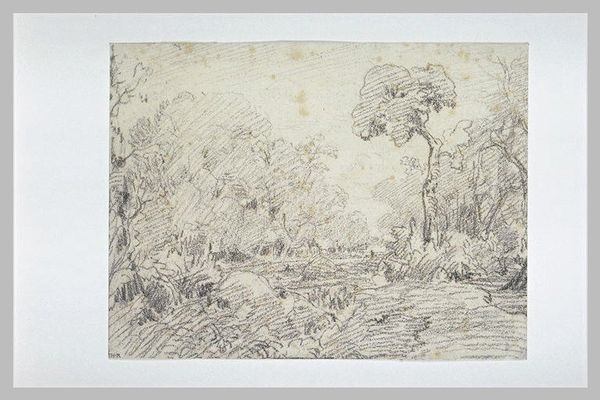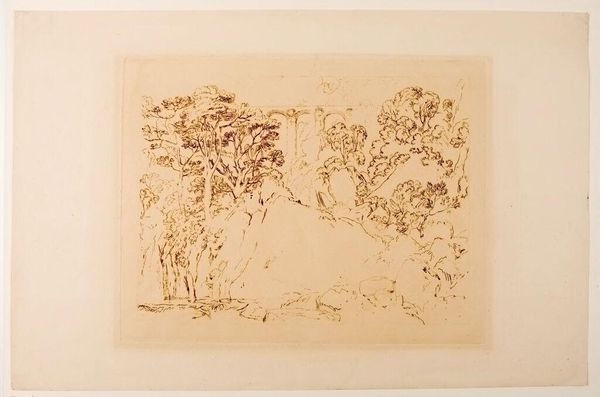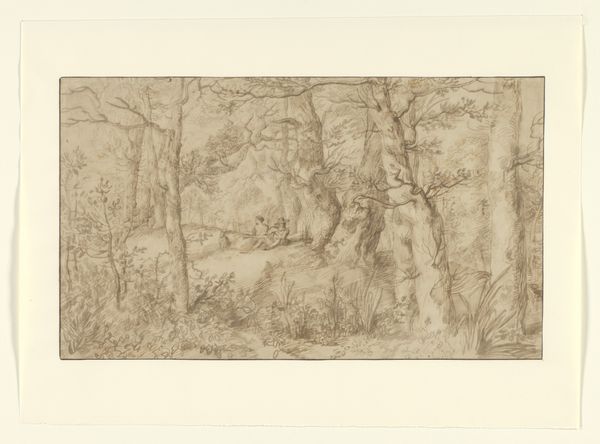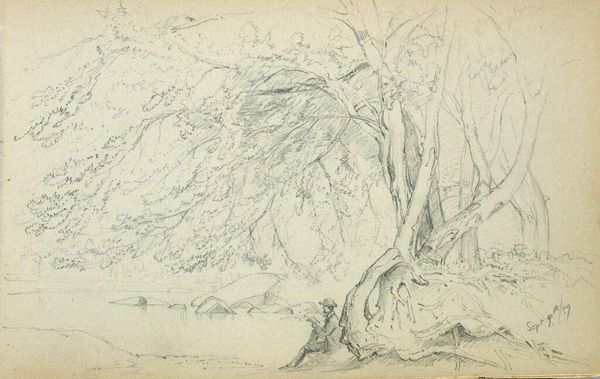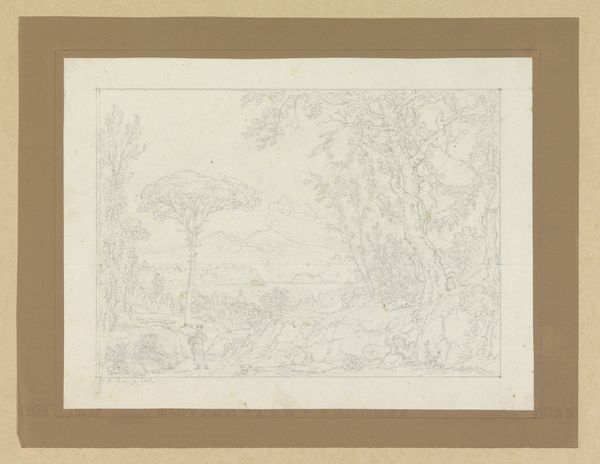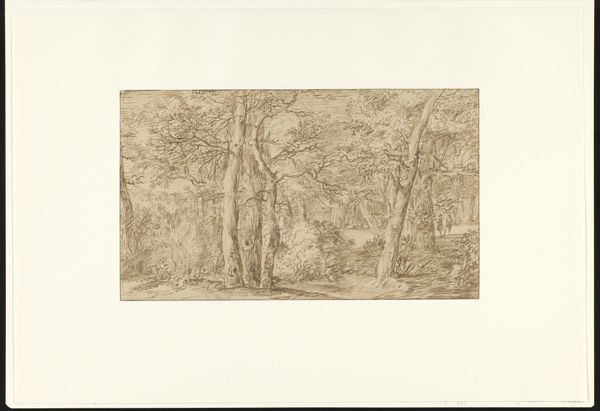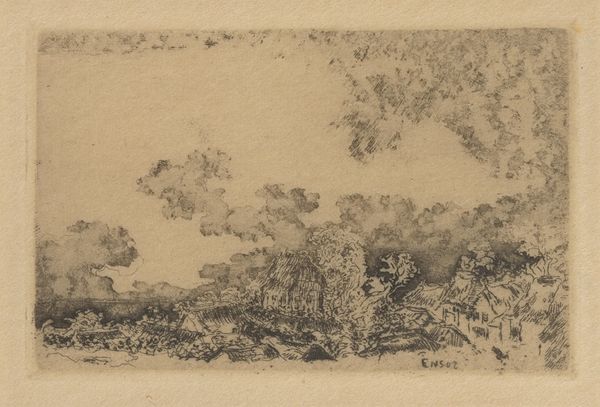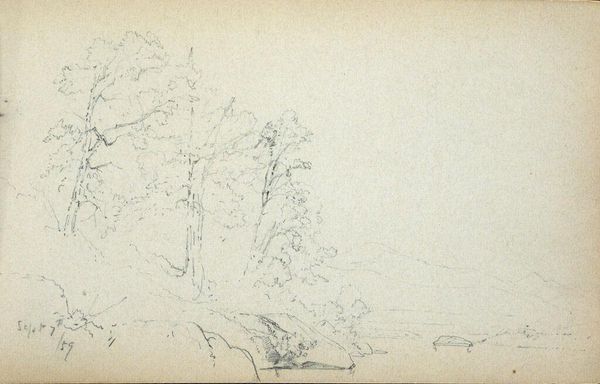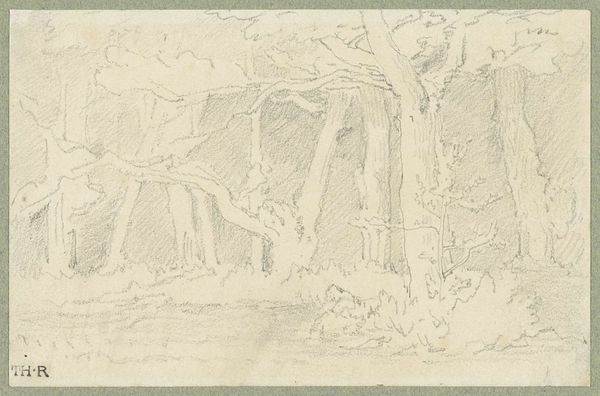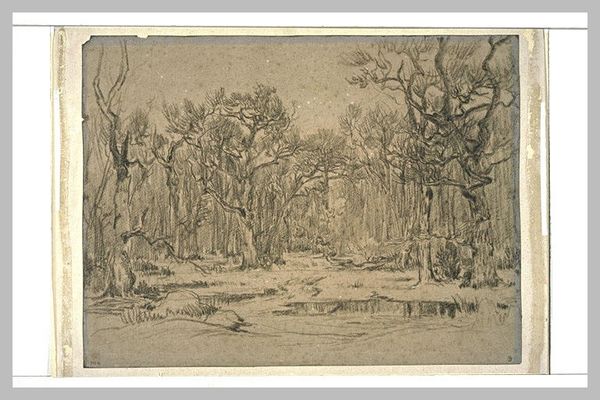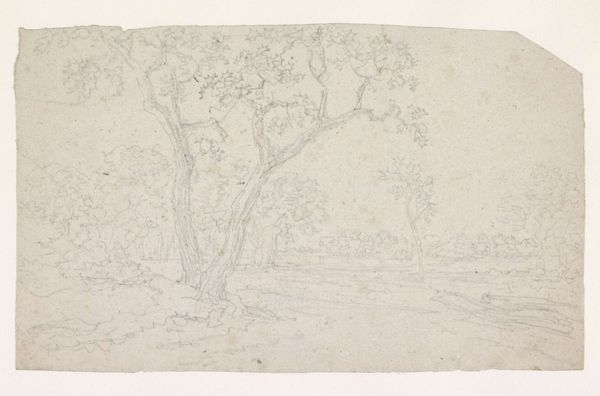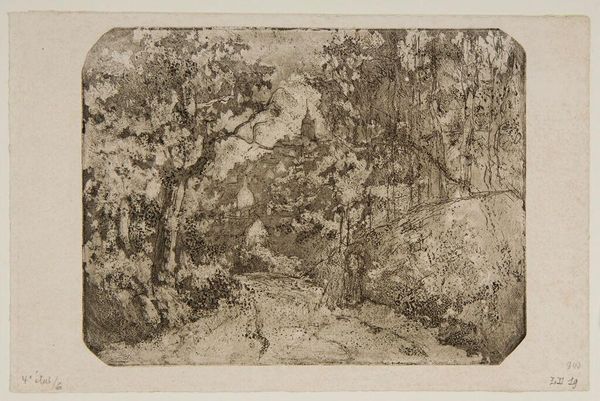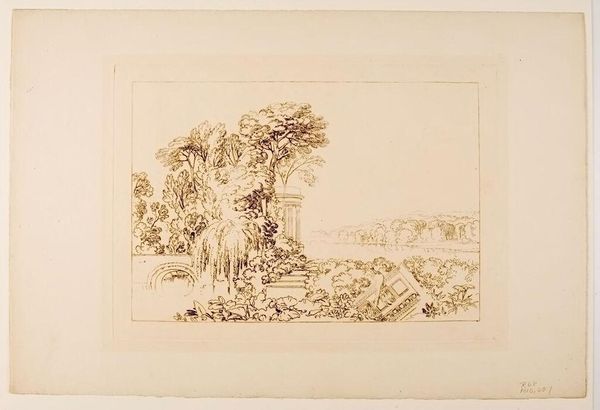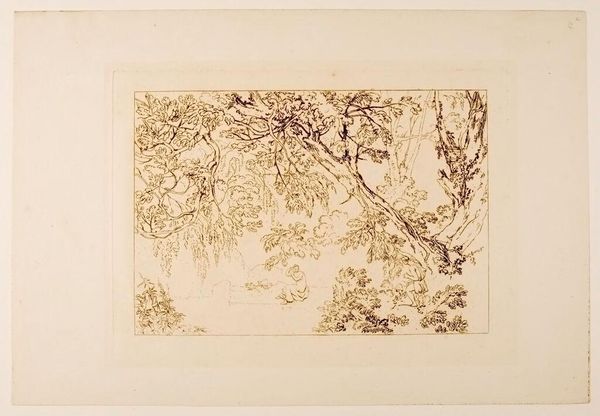
drawing, plein-air, pencil
#
drawing
#
ink painting
#
plein-air
#
landscape
#
romanticism
#
pencil
Copyright: Public domain
Here we see Théodore Rousseau's sketch, “Out of the Forest of Fontainebleau.” The sepia ink on paper creates a warm, enveloping tone, a monochromatic symphony, where the detailed linework invites us to step into a clearing framed by trees. Rousseau uses the trees as a structural device, a kind of proscenium arch, drawing the viewer's eye into the receding landscape. The cattle act as a visual anchor, their forms rendered with an economy of line that suggests mass and presence without overwhelming the composition. The artwork seems to engage with a semiotic system, where each element carries a symbolic weight. The forest isn't just a place; it's a space of transformation and mystery. The clearing, framed by the trees, becomes a stage where nature and the human figure interact. In this sense, Rousseau seems to challenge fixed meanings by creating a space that exists between wilderness and civilization, where the two can coexist. The drawing’s formal qualities serve a larger cultural function. It invites us to contemplate the relationship between humanity and nature, not as oppositional forces, but as interconnected elements within a larger system.
Comments
No comments
Be the first to comment and join the conversation on the ultimate creative platform.
